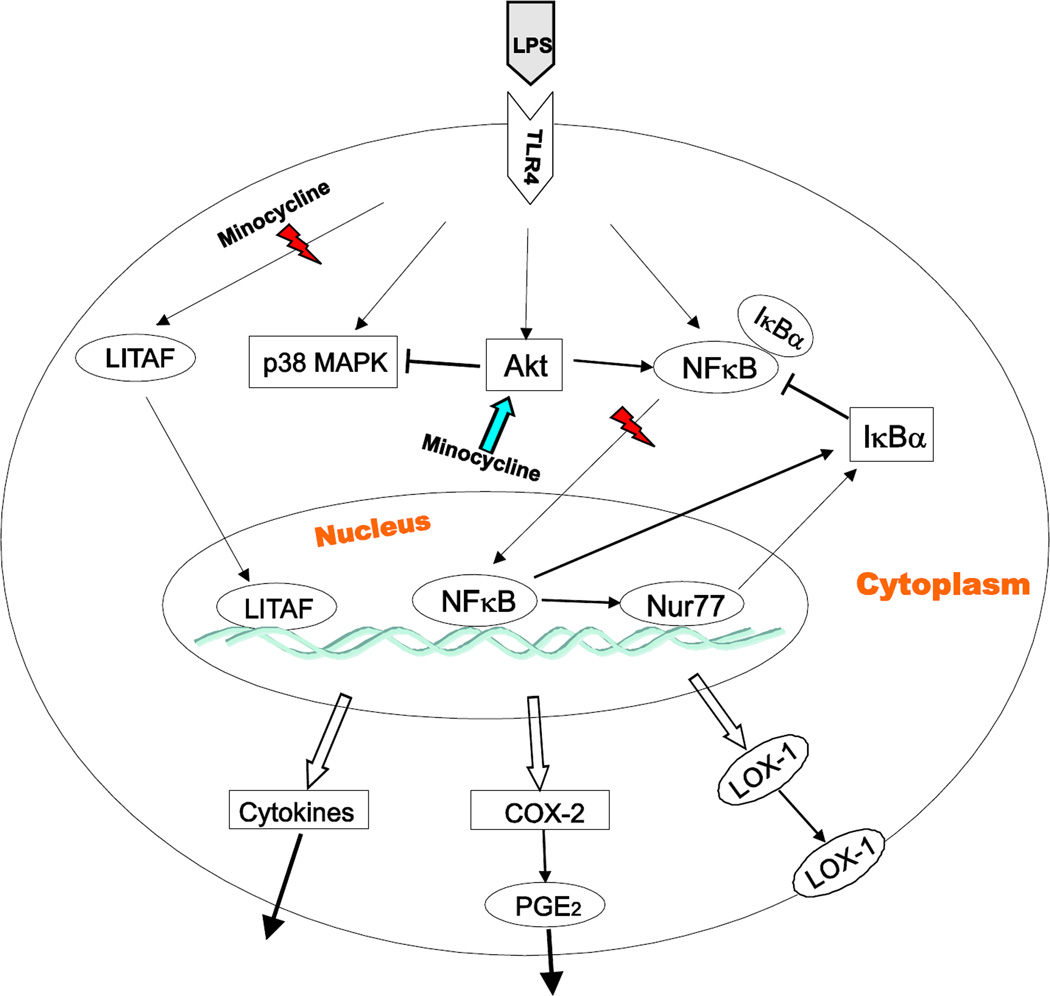Fig. 9.
Scheme for the proposed pathway involved in minocycline anti-inflammation in primary human monocytes. The pro-inflammatory effects of LPS in primary human monocytes are the consequence of binding to its TLR-4 receptor, which in turn enhance LITAF production, p38 MAPK and Akt activation, and the nuclear translocation of the transcription factors NF-κB, Nur77 and LITAF. This results in the release of pro-inflammatory cytokines (TNF-α, IL-1β, IL-6), COX-2 expression and release of its product PGE2 and transmembrane receptor LOX-1 production. Minocycline abrogates the pro-inflammatory effects of LPS by a number of mechanisms including inhibition of p38 MAPK activation, LITAF transcription, and LITAF, NF-κB and Nur77 nuclear translocation, and activation of PI3K/Akt pathway. Akt-dependent inactivation of p38 MAPK may be partially responsible for minocycline anti-inflammation effect in human monocytes.

